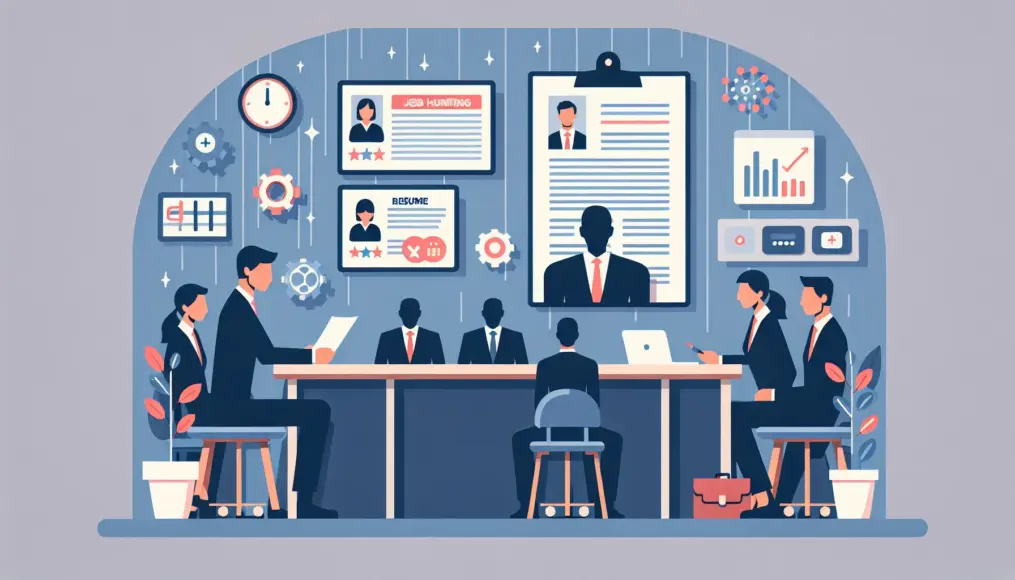When it comes to interviews, how you respond to questions from potential employers is crucial.
Many of you might be feeling anxious, wondering, “What kind of questions will they ask?”
The truth is, employer questions often carry a specific intention behind them.
By grasping that intention, you can navigate the interview process more smoothly.
- How to uncover the background behind employer questions
- Examples of common questions and how to tackle them
- Tips for crafting effective responses
Understanding the Intent Behind Company Questions
During interviews, you’ll encounter a variety of questions from potential employers.
These questions are designed to help companies identify the type of talent they are looking for.
Therefore, it’s crucial to understand the context behind these questions ahead of time.
Delving into the Background of Questions
There are many reasons behind the questions that companies ask.
For instance, some questions aim to uncover the skills and values the company seeks in candidates.
Through these inquiries, they try to determine whether you are a good fit for their organization.
By exploring the intent behind the questions, you can create a solid foundation for providing effective answers.
To grasp what kind of candidates companies are looking for, it’s essential to thoroughly research the organization itself.
Once you’re informed, you can better contemplate the background of each question.
- Understand the skills and values the company seeks
- Consider the intent behind questions to provide effective answers
- Research the company in advance
How to Understand a Company’s Needs
There are several ways to learn about a company’s needs.
Start by checking the company’s official website and their job postings.
These resources often outline the ideal candidate profile and specific skills they are looking for.
Additionally, keeping an eye on industry trends and the competitive landscape can be beneficial.
With this information, you can gain insights into the type of talent the company requires.
This understanding allows you to prepare more concretely for interview questions.
If you’re interested in effective ways to answer common interview questions, check out A Guide to Acing Common Interview Questions! Your Path to Success.
- Review the company’s website and job postings
- Research industry trends and competitors
- Strengthen your interview preparation by understanding company needs
Common Questions from Employers
During interviews, you’ll encounter a wide range of questions from employers.
Many of these questions often focus on topics like self-introductions and career vision.
By answering these questions effectively, you can showcase your strengths and appeal to the company.
Key Points for Self-Introductions
The self-introduction is a crucial part of the interview, typically occurring at the beginning.
Here, you need to convey your background and skills succinctly.
The key is to engage your audience by including specific anecdotes that pique their interest.
For example, sharing your achievements from past roles or discussing experiences that contributed to your growth can be impactful.
It’s also essential to tailor your self-introduction to align with the company’s needs.
- Clearly convey your background and skills
- Capture interest with specific anecdotes
- Align your content with the company’s needs
Discussing Your Career Vision
Talking about your career vision provides an opportunity to express your future aspirations.
Interviewers are interested in understanding what kind of growth you’re aiming for and how that growth can benefit the company.
When articulating your vision, it’s effective to outline your goals and the concrete plans to achieve them.
Additionally, demonstrating that your vision resonates with the company’s direction and values can leave a stronger impression.
By connecting your vision with the company’s objectives, you can foster a sense of trust with your interviewer.
For more insights on this topic, you might find it helpful to check out 接客業面接で差をつける!よくある質問と成功の秘訣.
- Clearly articulate your future aspirations
- Present specific goals and plans
- Emphasize alignment with the company’s direction
How to Structure Effective Answers in an Interview
When it comes to answering questions in an interview, having a solid structure is crucial.
To provide effective responses, it’s important to prepare in advance.
This is especially true when conveying your experiences and thoughts in relation to questions posed by the company; the way you structure your answers can make a significant difference.
Utilize the STAR Method
The STAR method is a fantastic tool for organizing your responses during an interview.
This approach involves four key elements: Situation, Task, Action, and Result.
Start by describing a specific situation, followed by outlining the task you faced.
Next, delve into the actions you took and conclude with the results you achieved.
By using the STAR method, you can present clear and concrete examples that are easy for the listener to grasp.
- Organize your answers using the STAR method
- Explain the situation, task, action, and result in order
- Incorporate specific anecdotes to illustrate your points
Include Concrete Examples in Your Answers
Incorporating concrete examples into your responses during an interview can be highly effective.
Specific examples serve as evidence of your skills and experiences.
For instance, discussing your exact role in past projects or how you overcame challenging situations can be particularly impactful.
Such detailed information helps leave a strong impression of your capabilities with the company.
Additionally, providing concrete examples makes it easier for the interviewer to understand your narrative.
If you’d like to delve deeper into the importance of including specific examples, check out The First Step to Success! A Comprehensive Guide to Interview Preparation.
- Enhance your persuasiveness by including specific examples
- Clearly describe your past experiences and roles
- Share how you navigated difficult situations
Steps to Prepare Effectively for Your Interview
Preparing for an interview is key to your success.
By getting ready thoroughly, you can approach the interview with confidence.
Utilizing mock interviews and feedback can make your preparation even more effective.
The Importance of Mock Interviews
Mock interviews are practice sessions designed to simulate the actual interview experience.
They allow you to test your responses in a setting that mimics the real thing, complete with the associated nerves.
During a mock interview, it’s crucial to assess your reactions to typical questions, as well as your tone of voice and facial expressions.
Involving friends or family in your mock interviews can provide you with genuine feedback.
By repeating this kind of practice, you’ll become more comfortable expressing yourself on the big day.
- Practice as if you’re in a real interview
- Test your responses while feeling the pressure
- Identify areas for improvement based on feedback
Making the Most of Feedback
After conducting mock interviews, feedback becomes invaluable.
Hearing insights from others can help you uncover areas for improvement that you might not notice on your own.
For instance, advice on both the content of your answers and your delivery can be incredibly useful.
Once you receive feedback, think about specific ways to improve and apply those insights to your next mock interview. By repeating this process, you’ll build the confidence needed to face the interview head-on.
If you’d like to learn more about crafting a standout self-introduction during your interview, check out ニートからの再出発!面接で差がつく自己紹介のコツ for some helpful tips.
- Use feedback to identify areas for improvement
- Implement advice on delivery and demeanor
- Incorporate improvements into your next mock interview
Conclusion
To effectively answer questions from potential employers during an interview, thorough preparation is essential.
Understanding the qualities that companies are looking for is crucial, as is taking the time to think specifically about your self-introduction and career vision.
Additionally, conducting mock interviews and receiving feedback can greatly enhance your skills.
- Grasp the intent behind the employer’s questions
- Prepare a clear self-introduction and career vision
- Utilize mock interviews and feedback to build confidence
Make sure to follow these steps as you prepare for your interview.
I wish you the best in leveraging your experiences and skills to achieve fantastic results.
If you found this article helpful, please feel free to leave a comment!



Comment